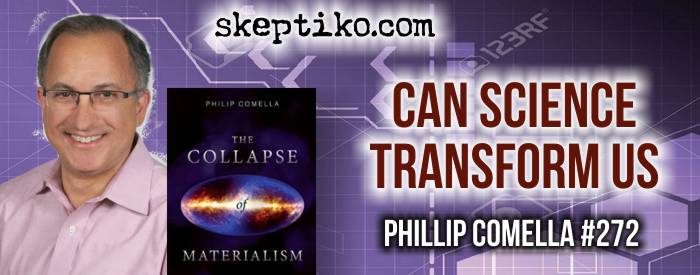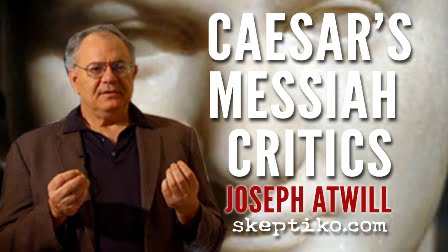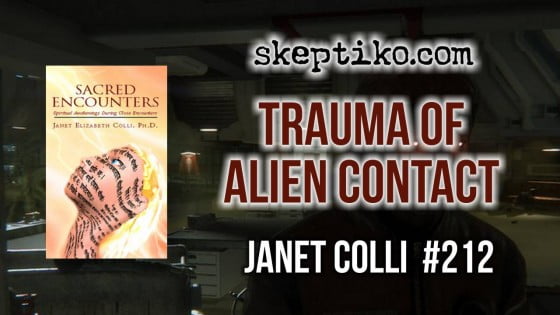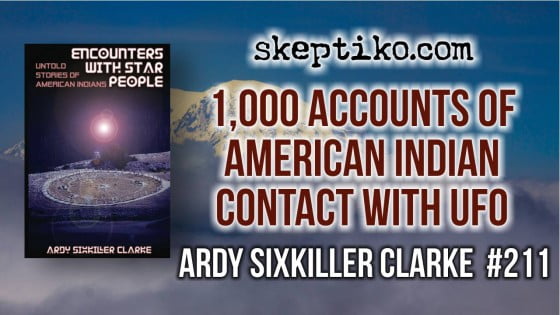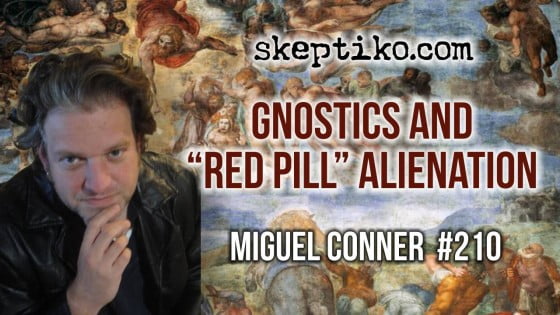This psychologist believes technology can be used to assist spiritual seekers. photo by: Martin When Jonathan Robinson contacted me about doing an...
Tag: spirituality
Can materialistic science answer life’s big questions? |317|
Science is notoriously bad at answering life's big questions, but can the methods of science bring us closer to truth? photo by: Marcello Maria...
Why are so many movies going Gnostic? |315|
Miguel Conner explains why movies like Snowpiercer and The Lego Movie rely on Gnostic themes. photo by: Bong Joon Ho Today we welcome Miguel...
Brad Warner teaches his Zen students ancient wisdom — Don’t be a jerk |311|
Zen teacher and author Brad Warner uses the ancient teachings of Dogen to reinforce a simple idea -- don't be a jerk. photo by: Michelle Grimord...
Why David Bentley Hart thinks choosing a tie reveals more about consciousness than near death experiences |298|
Theologian and Philosopher Dr. David Bentley Hart has little patience for sloppy thinking atheists. Looks to consciousness and spirituality. photo...
This Atheist has revolutionized Buddhism. Does consciousness science agree with his beliefs? |293|
Buddhist teacher Stephen Batchelor explores scientific materialism and secular Buddhism. photo by: Stephen Lasky I remember the first time I tried...
What divides Christians and non-believers |290|
Biblical Scholar Joel Watts looks at what Christians don't know about Christianity. photo by: Bolton We're conditioned to believe the cultural and...
Is Christianity worth saving? |275|
Mark Vernon reveals how progressive Christians struggle with their tradition's past while holding on to the promise of spiritual transformation. ...
272. Phillip Comella Can Science Lead to Spiritual Transformation
Alex Tsakiris of Skeptiko interviews Phillip Comella, about The Collapse of Materialism and whether a scientific understanding of consciousness can...
Why meditation and science are on a collision course. Mind > brain |268|
Dan Harris is a star at ABC News, but his investigation of meditation and science turned into more than a news story. Meditation works... so say...
Has a Harvard-trained psychologist unlocked the secret to enlightenment? |267|
This Harvard-trained researcher is trying to unlock the secrets of enlightenment and put it into an online course. In-depth study of those who...
Are some Christian scholars changing their opinion of divinity? |263|
Alex Tsakiris of Skeptiko interviews Christian mystic Albert LaChance and religious scholar Rebecca Goodwin on experiencing spirituality, and the...
261. Why Science Is Wrong…About Almost Everything
https://www.youtube.com/watch?v=pqpMBqChuX8 An Exploration of Skeptiko 3.0 and Why Science Is Wrong...About Almost Everything. Join Skeptiko...
What if our progress is really a decline. Acclaimed author challenges our myths about progress |258|
Interview with JohnMichael Greer on science, technology, and his pessimistic view of the descent of civilization. A healthy look at our myth...
Is the near-death experience only for Christians? One NDE expereincer thinks so |255|
Interview with Ian McCormack about his exclusively Christian interpretation of near-death experiences. Join Skeptiko host Alex Tsakiris for an...
The real reason scientists refuse to believe near-death experiences… and how it’s linked to the pro-life movement |251|
Interview with journalist and author examines resistance to evidence suggesting consciousness survives death. Join Skeptiko host Alex Tsakiris...
249. Tim Freke On Soul Crushing Science
Interview with consciousness philosopher and author, Tim Freke examines the absurdity of science-as-we-know-it. Join Skeptiko host Alex Tsakiris...
Controversial history of Jesus draws ire of Christians and atheists. Is Caesar’s Messiah legit? |241|
Interview with Joseph Atwill examines criticisms of his controversial theory about the founding of the Christian church and his book,...
240. Dr. David Lane Not Sandbagged — Patricia Churchland Part 2
https://www.youtube.com/watch?v=VtHzDMwQ9fw Click here for YouTube version Click here for forum discussion Interview with Dr. David Lane...
Dr. Jim Tucker compiles largest database of past life memories |239|
Interview with University of Virginia professor Dr. Jim Tucker about research of children who remember past lives. photo by rogintakesphotos Join...
234. Global Warming, Climate Change and Our Illusion of Control
Click here for YouTube version Click here for forum discussion Interview with the Rick Archer host of Buddha at the Gas Pump, and John...
212. Clinical Psychologist Dr. Janet Colli Treats Trauma of Alien Contact Experience
Interview explores the trauma and eventual spiritual transformation of those reporting alien contact. Join Skeptiko host Alex Tsakiris for an interview with Dr. Janet Colli author of, Sacred Encounters: Spiritual Encounters During Close Encounters. During the interview Colli talks about how the trauma caused by these experiences: Alex Tsakiris: Suppose you have an Iraqi war veteran who walks into your office and says, “I’m suffering post-traumatic stress syndrome,” which 20 years ago was highly controversial, but now we’d say, “Okay,” and you’d have a series of protocols you might take that person through. What are the limits on what you can do with someone like that versus what you do with someone who comes in and says, “I think I had an encounter with alien beings and I’ve had this for a long time and it’s really causing me a lot of stress.” As a clinician, how do you deal with those two situations? How are they similar; how are they different? Dr. Janet Colli: I would say that the nervous system doesn’t make up trauma. The signs of trauma are pretty well recognized now. That knowledge and those experiences pretty much overwhelmed all of the questions of are people making up things? You want to treat it as trauma and to some degree respect what people are saying even if you yourself are not sure of the so-called objective reality of what happened. You want to be treating that using trauma methods. I use the EMDR a lot, Eye Movement Desensitization and Reprocessing, and it really does help the nervous system process things that are difficult. (continued below) Dr. Colli's Website Click here for YouTube version Click here for forum discussion Play It Listen Now: Download MP3 (44 min.) Read It: (pre-interview) Dr. Janet Colli: How would you characterize your audience, if I might ask? Alex Tsakiris: No, I’m glad you did. My audience is very open-minded and progressive-minded so we just call the skeptical nonsense for what it is and say, “That’s just a crazy, irrational worldview that just really doesn’t make sense.” But in the spirit of doing that, I think we have to remain skeptical as well, and when we get into consciousness there are a lot of different people saying a lot of different things out there.
...211. Montana State University’s Ardy Sixkiller Clarke Compiles 1,000 Accounts of American Indian Contact With UFO Phenomena
Interview explores the personal accounts of Native Americans and “Star People”. Join Skeptiko host Alex Tsakiris for an interview with Dr. Ardy Sixkiller Clarke author of, Encounters with the Star People: Untold Stories of American Indians. During the interview Clarke talks about how a spiritual worldview affects the accounts she’s collected: Alex Tsakiris: If we unpack these experiences with American Indians that you’re talking about, we assume going in that there’s a different spiritual orientation. I think we assume—whether this is true or not—that in American Indian cultures there’s are a different set of givens. What would you say about that? Is that true? Is that a misconception? And, how might that play into these accounts of encounters with alien beings? Dr. Ardy Clarke: Well, I think again you have to separate tribes. There are some tribes where it’s forbidden to even speak the name of a dead person. Where in other tribes they believe that when someone dies they stay with them for a year. Their spirit remains with them for a year and then after a year they hold a ceremony to release that person. They have ceremonies where they can speak with those who have passed on. They have ceremonies where they can speak with the Ancients or where the Ancients come to them and give them knowledge and answer their prayers or their questions. So it depends on the tribal group, and it’s difficult for me to say, as a general rule, there is this spiritual connection. But there definitely is with some of the tribes. There’s no question about it. Some of the tribes actually talk about the trip across the Milky Way. That when you die you cross the path of the Milky Way. You’ve got a common theme there that the cosmos plays so much a part in afterlife and death and the ability of the deceased that they never really die. They just move on into another dimension and that they can come back and communicate with the living. Alex Tsakiris: See, I just think no matter what subtle differences you might have in that worldview, I think a worldview that incorporates this spiritual dimension puts you in a completely different place in terms of dealing with the UFO phenomena. Dr. Ardy Clarke: I do, too, because Native people on a whole are accepting of it. They aren’t skeptical of it. So if you approach it from a perspective that it is part of the universe and that it’s nothing to fear, then that’s one view. But to be skeptical of it and not believe what you’ve seen or to deny that it occurs is a totally different worldview. Dr. Clarke's Website Click here for YouTube version Click here for forum discussion Play It Listen Now: Download MP3 (45 min.) Read It: Today we welcome author and Professor Emeritus from Montana State University, Dr. Ardy Sixkiller-Clark to Skeptiko. Dr. Clarke has a long, distinguished academic career working with indigenous populations and is here to talk about her fascinating new book, Encounters With Star People. Dr. Clarke, welcome to Skeptiko. Thanks so much for joining me. Dr. Ardy Clarke: It’s my pleasure. Alex Tsakiris: Dr. Clarke, tell us about your book. Obviously how you came to write it. Maybe a little bit about the methodology you used. You’ve worked for a long time with Native Americans and are familiar with some of the cultural aspects of that. How did you come to write this book?
...210. Miguel Conner Explores Gnostic Themes and “Red Pill” Alienation
Interview with author and Podcast host examines Gnostic themes in our modern culture. Join Skeptiko host Alex Tsakiris for an interview with Miguel Conner author of, Voices of Gnosticism. During the interview Conner talks about the limits of Gnostic history: Alex Tsakiris: You do a masterful job exploring how these threads of Gnosticism are woven into our modern culture, but what about the limits of history? Isn’t Gnosticism limited in the same way Christianity’s limited in that it’s always looking in the rearview mirror for the next archaeological dig to tell us who we are? Isn’t that an inherent limitation of this kind of historical-based knowing? Miguel Conner: There certainly is, but it goes beyond history. I think the scholar, Ioan Couliano, who wrote, The Tree of Gnosis, said that there’s sort of a binary Gnostic code within man and this binary code will always go off. So, you’re always going to have Orthodoxy on one side believing that the world is going to be fine and that we’re part of this grand history, this providence. But there’s also the other side that’s always there. This side that tells us we are alienated; we are trapped in this world; there’s something wrong with this world. It’s invites us to go on this inner voyage inside and outside of us. That is why there are many writers and thinkers like Carl Jung and others who before the Nag Hammadi library was discovered were getting some of the Gnostic ideas and concepts. They were getting it very well even with the little information out there. So yes, we are limited by history but again I feel that this Orthodoxy and Gnosticism is within each one of us. That’s why it keeps resurfacing in so many different traditions, whether it’s Buddhist or Muslim and so forth. It’s there. Miguel's Aeon Btye Gnostic Radio Click here for YouTube version Click here for forum discussion Play It Listen Now: Download MP3 (48 min.) Read It: Today we welcome Miguel Conner. As host of Aeon Byte Gnostic Radio, author of the critically-acclaimed Voices of Gnosticism, Miguel is one of the leading voices of this Gnostic movement that we seem to keep hearing so much about. I should also mention that Miguel is also an accomplished fiction writer, having penned several popular post-apocalyptic vampire novels that have really caught the attention of people. So Miguel, it’s great to welcome you to Skeptiko. Miguel Conner: I’m glad to be here, Alex. Thank you for having me on. Alex Tsakiris: You know, I should mention we tried to do this a week ago but we ran into some Skype trouble so we’re going to do it again. In that intervening week I’ve dug into even more of your shows and I just keep wanting to dig more and more. You have such a great insight into this fascinating area of knowledge that is Gnosticism. You weave it into our modern culture and modern contemporary issues in such an imaginative, creative, and entertaining way that I just really wanted to get you on and encourage people to check out Aeon Byte Gnostic Radio. Miguel Conner: Thank you very much. I don’t know if I can live up to that billing, but I’ll try.
...209. Talat Jonathan Phillips Chronicles His Transformation From Political Activist to Spiritual Seeker
Interview with activist and author explores his personal journey with Ayawaska, ETs, and energy healing. Join Skeptiko host Alex Tsakiris for an interview with Talat Jonathan Phillips author of, The Electric Jesus: The Healing Journey of a Contemporary Gnostic. During the interview Phillips talks about finding a balance between the worldly and spiritual pursuits: Alex Tsakiris: If you buy into materialism, if you think you’re a biological robot and that’s all you are -- you’re lost. If you buy into our materialistic culture and this idea that we need to get all we can, and we need to bomb other people so they don’t get it -- all that stuff -- you’re lost. But as soon as you cross that chasm and you say, “Okay, there’s something more”, then I think you run into this problem what we’re talking about. And that is materialism keeps wanting to creep itself back into the equation. So, you’re saying, “I need to take action here. I need to go do this. I need to vote for this candidate. I need to do that.” Isn’t there the risk that we get into this back-door materialism, this “we’re in control” thing? Talat Phillips: Oh yeah. But I think it’s both. We’ve set up an either/or and I think it’s both/and because if I look at most of my clients, most of them come in and think we’re going to talk about past lives and this and that. But most of them need to get into the material world a little bit. They need to get in their bodies and figure out jobs and live an abundant life. That doesn’t mean buy a mansion but it just means to know how to support themselves and talk with people. I don’t want to deny that aspect because it is important. I denied it for many years of my existence and maybe that was why I was a marginalized activist. On the other hand, I definitely saw this with Occupy. It was very frustrating for me seeing all the projected anger about finances. I do a lot of anger work with clients. It’s good to express anger but when you project it at others it creates more of that fear culture. What I like with Evolver.net is that we’re more like, “How can you create? How can you follow your bliss and your passions and do what you love?” I think Joseph Campbell talks about this. This is a dance we have of integrating. So I think what you’ve brought up is a great study that we all do. It’s an alchemy of walking as a human and being as a human on this planet. It’s being and doing and creating a right relationship between that. Talat Jonathan Phillips Website Click here for YouTube version Click here for forum discussion Play It Listen Now: Download MP3 (47 min.) Read It: Today we welcome Talat Jonathan Phillips to Skeptiko. Talat is the author of The Electric Jesus: The Healing Journey of a Contemporary Gnostic. He is also the co-founder of a rather amazing web magazine named Reality Sandwich and an equally amazing social movement at www.evolver.net. Welcome to Skeptiko, Talat. Thanks so much for joining me. Talat Phillips: It’s great to be here. Thanks, Alex. Alex Tsakiris: Well, your book, The Electric Jesus, is just a great read. I mean, I was just blown away at how it pulls you in and just makes you want to turn page after page. It’s a spiritual odyssey, as the name suggests, but it reads like a Tom Wolfe novel. Tell us a little bit about this book and how it came about and what people are going to find when they read it.
...208. Dr. Julia Assante On Technology Training Us to Talk With Spirits
Interview with author, scholar, and psychic medium Dr. Julia Assante challenges our fear of death. Join Skeptiko host Alex Tsakiris for an interview with Dr. Julia Assante author of, The Last Frontier: Exploring the Afterlife and Transforming Our Fear of Death. During the interview Assante talks about the effects of technology on spirit communication: Alex Tsakiris: Let’s face it, we love this materialism we’re wrapped up into. We love our computers—we love our Internet, our Google, our Skype. So whether we wind up merging with the machine as Kurzweil predicts, it’s hard to deny this trajectory of technology. Dr. Julia Assante: I think we should really enjoy being in physical life. I think our technology is, in fact, the chief art of our era. And technology is also training us to think outside of the box, to think in terms of interdimensionality, and to think in terms of communicating with consciousness in other dimensions. If you think, for instance, of the telephone that was an astounding invention when it was presented in Philadelphia by Alexander Graham Bell. He used Hamlet’s soliloquy, talking to a skull of all things, to demonstrate the phone in public. People were nervous and frightened. They thought he was conjuring ghosts. So that kind of technology alone allows our paradigms to open and include discarnates, invisibles, crossing distances, all that kind of thing. The Internet is even doing more with the idea of cyberspace and collapsed space. I think that our use of electronics and digital systems are causing us to become more sensitive to subtler and subtler electrical impulses so I think technology is not at conflict with the so-called spiritual but is working with it as an analogy and as a training ground. Dr. Julia Assante's Website Click here for YouTube version Click here for forum discussion Play It Listen Now: Download MP3 (46 min.) Read It: Today we welcome Dr. Julia Assante to Skeptiko to discuss her new book, The Last Frontier: Exploring the Afterlife and Transforming Our Fear of Death. Dr. Assante is an Ivy League scholar in ancient Near East studies and--here’s where things get really interesting--a longtime practicing psychic medium who even while pursuing her Ph.D. at Columbia was talking to the dead. So Dr. Assante, welcome and thanks so much for joining me today on Skeptiko. Dr. Julia Assante: Oh, thank you for inviting me. It’s a great pleasure. Alex Tsakiris: Your book has received very high praise from the likes of Dr. Dean Radin, Dr. Larry Dossey, who also wrote the Introduction, and other notables. So first of all, congratulations on this fine book. Dr. Julia Assante: Well, I’m really honored to have these people, and even Deepak Chopra whose endorsements are very restricted. He’s only allowed to do seven a year so I’m very privileged.
...206. Rick Archer From Buddha at the Gas Pump on Meditation and Spiritual Practices
Interview with Rick Archer host of the website and Youtube channel, Buddha at the Gas Pump. Join Skeptiko host Alex Tsakiris for an interview with Rick Archer of, Buddha at the Gas Pump. During the interview Archer talks about a thought experiment he uses to better understand our place in the universe: Rick Archer: Here’s the game: zoom out to the level of perspective where you can watch the Andromeda galaxy collide with the Milky Way over the next 8 billion years. Realize, of course, that that’s actually a very, very tiny localized event compared to the whole universe but it’s big enough for our purposes here. Then imagine as you watch that over 8 billion years all the trillions and trillions of lives playing themselves out on all the inhabited planets in those galaxies. Each one of those lives seems very real and serious to the person living it, but from that perspective they’re like little fireflies winking in and out, even faster than that. Billions and trillions of little strobe lights going on and off. Now zoom it down, past the human level down to the level of the plank scale and you discover there is no universe. It’s just all a field of pure potentiality in which even a cubic centimeter of empty space at that level has more energy than all the energy in the entire manifest universe. That’s essentially what you are. Now zoom it back to the human level. Here’s what you are in expressed form, in a manifest, living form. But, this perspective as a human being is no more real than the zoomed out cosmic perspective or the zoomed in plank scale perspective. Those are just different perspectives on reality. We just have a peephole as a human being. Just a little peephole and yet we can actually culture an awareness that is cosmic like that. That does transcend time and space. That’s vast. That’s eternal. That can be our living reality. That can be the sort of substance of our lives. That’s what enlightenment is all about, which is the question you started this interview with. It’s not a pipedream; it’s not a fantasy. It’s something that many people have lived throughout history and something that we would have a very interesting world on our hands if it were commonplace. All the problems and travails that beset us as a civilization today would be just distant memories if that were a common experience. Buddha at the Gas Pump Website Click here for YouTube version Click here for forum discussion Play It Listen Now: Download MP3 (91 min.) Read It: Today we welcome Rick Archer to Skeptiko. Rick is the creator and host of Buddha at the Gas Pump, a website and YouTube channel that features an amazing collection of interviews with all sorts of interesting thinkers, spiritual teachers, and enlightenment-seeking individuals. Rick, I’m a big fan of your show and I’m so happy to welcome you to Skeptiko. Rick Archer: Well, the feeling is mutual. I started listening to your show for the first time last Tuesday and now it’s Saturday and I think I’ve listened to six or seven of them, which means over an hour a day I’m listening to Alex while I ride my bike and wash the dishes and stuff. I’m thrilled by it. I’m going to continue listening. You and Bill Maher and Bill Moyer are my favorite podcasters now.
...204. Dr. Julie Beischel’s Research Asks — Does a Reading From a Psychic Medium Help Relieve Grief?
Interview with psychic medium researcher Dr. Julie Beischel explores the practical applications of a reading from a psychic medium. Join Skeptiko host Alex Tsakiris for an interview with Dr. Julie Beischel author of, Among Mediums: A Scientist’s Quest For Answers. During the interview Beischel talks about her research: Alex Tsakiris: We’re taking these very deep, personally meaningful topics in a very stark, scientific, clinical way, and that ok because it helps us get some distance from it. But on this issue of grief, if we look at it the way you have, it really breaks down pretty nicely as a question we can ask scientifically. There are people who report this condition. We’ll call it grief. We treat this condition. We send them to a talking psychologist or psychiatrist and that person talks—talks—talks—talks. Then we measure afterwards. Sometimes they’re better; sometimes they’re not. Or, we send them in and to get some kind of pharmacological treatment. They get these little pills and they take them, pop--pop--pop. They either get better or they don’t. We measure that. You’re suggested that there are some other people, ones that have a had a reading with a medium and they report that this has relieved them of their grief. And in the same way we’re measuring these other treatments, we can measure them. That is how it breaks down, isn’t it? Dr. Julie Beischel: Yeah. And, that’s my training -- drug trials. I used to design these kinds of experiments. There’s a protocol, and there’s a control group, and a treatment group, just like a drug trial. Instead of a drug it’s a mediumship reading. I designed this very specific protocol using a standardized grief instrument and two different funders have found it to be not what they were looking for. But it needs to get done. We’re now in the process of reaching out to the public to try and get support for that study. It really needs to be done. The same thing like when we just want to look at the validity of the mediumship information. We have to start at the beginning. Are they reporting specific and accurate information? Does it make people feel better? We did a pilot study and people reported anecdotally that it made them feel better. Dr. Julie Beischel's Website Help Support Dr. Beischel's Grief Research Click here for YouTube version Click here for forum discussion Also of Interest: Gerald Gaura, a Psychotherapist treating acute, emergent psychospiritual crises, and anomalous phenomenon. Visit his blog at Parapsychotherapy X Play It (Interview With Dr. Julie Beischel) Listen Now: Download MP3 (55 min.) Read It: Today we welcome Dr. Julie Beischel to Skeptiko. As Founder and Head of Research at the Windbridge Institute, Julie is one of the world’s leading researchers studying psychic mediums. Julie holds a Ph.D. in Pharmacology and Toxicology from the University of Arizona. She’s here to talk about her new book, Among Mediums: A Scientist’s Quest for Answers. Dr. Beischel, welcome. I guess for those of us with a long memory I should say welcome back to Skeptiko. Dr. Julie Beischel: Thank you so much for having me again.
...Conservative Christian filmmaker debunks ancient alien theories, but not Noah’s ark |199|
Interview with Ancient Aliens Debunked filmmaker Chris White who swamps the Ancient Alien theories with science, but relies on Biblical inerrancy for core beliefs. photo by David Hdez Join Skeptiko host Alex Tsakiris for an interview with Chris White, creator of the popular documentary film, Ancient Aliens Debunked. During the interview White discusses the film as well as his controversial conservative Christian beliefs: Alex Tsakiris: Here’s what Ancient Aliens, the TV show says is one of the most compelling bits of evidence for the Ancient Alien proposition, and that’s the site of Pumapunku and the ruins there. That’s where you start the film. So, take us through Pumapunku, and how that’s debunked. Chris White: The main thing that the Ancient Astronaut theory proponents suggest is that these angles are too perfect and the stone-cutting is too amazing to be anything that any ancient peoples could have done. We could talk about what the site actually was and so on but the main thing is that the stonemasonry there at Pumapunku is not difficult to do. There’s lots of things that they say are true about Pumapunku that are not. For example, they say that these stones are granite and diorite and therefore they’re too hard. Not only is that not true if they were granite or diorite but they’re not granite or diorite. They’re red sandstone and ambercite. They are not as heavy as they say they are and they’re not as in the right-angles as they say they are. Later, Mr. White offers opinions on the limitations of Islam and Buddhism, and the primacy of Christianity: Chris White: In Islam they have a lot of rules that say, “Give to the poor. Fast. Be nice to people.” Those are rules that they’re following because of threat of whatever. Alex Tsakiris: You can’t generalize like that, Chris. Chris White: I think it’s dangerous when we say, “Oh, we know that these people are just as good.” I think you can analyze—not their personality -- I’m not talking about whether they’re good or not but you can analyze the very tenants of what they’re trying to do. And I think very few times do people understand Hinduism or Buddhism or Islam or any of these things… Alex Tsakiris: Chris, how many Buddhist monks have you met? How many Buddhist monks have you encountered and really sat down and experienced, and talked to? Chris White: It’s really not about the individual; it’s about what they are claiming that any individual would claim… Alex Tsakiris: How is it not about the individual? It’s only about the individual. Chris White: Because nobody has reached the very thing that they need which is freedom from Nirvana or getting to Nirvana. Show me a Buddhist that would claim that right now. Everybody’s saying, “Oh well, the suffering is caused by tanha.” Tanha is sin. It’s our desires to do bad things that we don’t want to do. That’s the reason that any Buddhist is trying to do the ascetic practices. They try to eat less rice, go onto a hill, do whatever because they’re trying to defeat the innate desire to sin. Now, that’s their path. If you understand that they’re hoping that one day, if they do all the right meditations and they eat the less food and they give away enough possessions and they’re nice enough to people, it will happen and they will be diminished in their level of desiring to sin. That’s Buddhism. Ancient Aliens Debunked Website Click here for YouTube version Click here for forum discussion Read It: Today we welcome filmmaker, radio host, and podcaster, Chris White to Skeptiko. Chris’ latest documentary, Ancient Aliens Debunked, has caused quite a stir among Ancient Alien believers, as you might expect, as well as skeptics and even Evangelical Christians, as Chris himself is quite public about being a Conservative Christian. There’s a lot here to unpack and Chris, I’m really glad that you’re joining me today on Skeptiko to do just that. Welcome. Chris White: It’s great to be here, Alex. I’m really excited about this interview. It’s a really unique opportunity and I’m looking forward to it.
...183. The Thinking Atheist Backs Down From Science Debate
Interview examines the scientific evidence underlying an atheist worldview and why atheists are reluctant to defend it. Join Skeptiko host Alex Tsakiris for an interview with The Thinking Atheist, Seth Andrews. During the interview Andrews explains why atheists don’t support scientists who believe ESP has been scientifically proven: Alex Tsakiris: There is this silly sideshow conversation that always dominates center stage-- “science versus religion, Christianity versus Atheists.” But the science question behind this really boils down to one question -- is your mind purely a function of your brain? Because if it isn’t then we get into all these other topics that start sounding very spiritual. Seth Andrews: To say that the reputable science community is advocating that there must be a conduit of spirit out there that is irresponsible, I don’t think that’s accurate. I don’t think it’s reflected by mainstream, especially secular scientists, who are the majority. I think if you spend that much time playing “What if,” you’ll drive yourself nuts. Alex Tsakiris: That is exactly why I wanted to do this interview in two parts, because I have to tell you, in the dialogues I’ve had, we always get to this point, which is we have to dig through all the opinions that we might have, beliefs we might have, get down to the science. Getting down to the scientific evidence and understanding it the best we can. So that’s my point. If you’re not familiar with Dr. Richard Wiseman – great -- go see what he has to say about ESP. I’m telling you about the near-death experience science and I’m telling you that overwhelmingly hypoxia has been dismissed as a possible explanation. So, go check out the science and then come back so we can have a real debate. Seth Andrews: So you’re a believer, then, in extra-sensory perception. You believe in ESP personally? Alex Tsakiris: Personally? Seth Andrews: I’m not sure why a yes/no question is so complicated for you. I’m just curious. Alex Tsakiris: Because I don’t what you mean by “personally.” I don’t have any personal experience with ESP. I think the evidence is overwhelmingly suggestive that it does happen, that there is some form of extended human consciousness that does occur in this way. That’s what the evidence shows. I don’t know what that means. Seth Andrews: I’m still stuck on ESP. I’m still stuck on it. Alex Tsakiris: Great, go check out the science. Seth Andrews: I’m still stuck on it. I honestly think—I mean, I lump ESP in with astral projection, with visions, with crystals, with—I myself think that this is a profound waste of time and energy. But to me, superstition and religion, they go hand-in-hand. Superstition and science do not. I don’t place them side-by-side. They are not bedfellows. They are not partners. Alex Tsakiris: Science is a method. It is not a position. It’s a set of tools, Seth. It’s just a way of inquiry. Seth Andrews: I think you and I are simply approaching the term “science” from different perspectives. The Thinking Atheist Website Click here for YouTube version Click here for forum discussion Play It: . Listen Now: Download MP3 (68 min.) . Read It: Alex Tsakiris: Welcome to Skeptiko where we explore controversial science with leading researchers, thinkers, and their critics. I’m your host, Alex Tsakiris, and on today’s episode I have a dialogue with The Thinking Atheist, Seth Andrews, whose popular YouTube channel has nearly 100,000 subscribers and millions of views. Now, as you know from listening to Skeptiko, it’s hard to book these kinds of interviews. Despite their claims to the contrary, Atheists and skeptics don’t really like to get into debates about science and about the evidence behind their beliefs. So I was delighted when Seth agreed to come on and come onto my new concept. I had this idea for a two-part format where we’d use the first interview to kind of map out our ideas, map out our thoughts, and then use the second part of the interview to really get into the debate. So here then is my first interview with Seth Andrews, The Thinking Atheist. Today we welcome Seth Andrews to Skeptiko. Seth is the creator of The Thinking Atheist, a very popular website and YouTube channel. Seth is also a former Christian and a former Christian broadcaster who challenges his listeners to “Assume nothing, question everything, and start thinking.” Welcome, Seth, and thanks for joining me on Skeptiko. Seth Andrews: It’s a real pleasure. Thanks for the invite and thanks for allowing me to be a part of the show.
...













